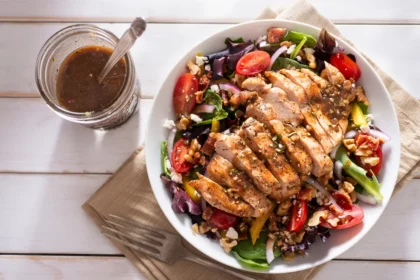Fan scores are perfect for Olivia Dunne’s TikTok dance celebrating LSU’s historic win
Olivia Dunne, along with LSU teammate Annie Beard, showcased their dance talents…
Usher and Jennifer Goicoechea got married: A couple said ‘I do’ in Las Vegas on Super Bowl Sunday
Usher, the renowned R&B singer, recently made headlines not only for his…
Rare Bicentennial Quarter: $1 Million USD Value + 5 more $51,000+ Gems!+USA Perks
In the vast world of numismatics, collectors and enthusiasts are constantly on…
Banana Pudding Cheesecake Recipe
Indulge in the heavenly combination of creamy cheesecake and classic banana pudding…
Grilled Chicken and Beetroot Salad with Apples and Beans Recipe
Elevate your salad game with our Grilled Chicken and Beetroot Salad with…
Olivia Dunne matches season high on floor routine as LSU puts together program-record score
The LSU Tigers gymnastics team achieved a groundbreaking milestone on Saturday, securing…
These are the 10 states with the highest life expectancy in the United States in 2023
Hey there, fellow health enthusiasts! Have you ever wondered which states boast…
Healthy Chocolate Brownies Cookies
Craving something sweet but don't want to derail your healthy eating habits?…










